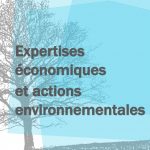The seminar “Economic expertise and environmental actions” welcomes
Vicky Kluzik and Arnaud Orain
Economic knowledge and growth
Has economic science always naturalized the goal of growth as economic policy? In this session, our guests will focus on the history of economics to show how alternative economic thinkers and knowledge have been concerned at different times with the biophysical limits of our planet, against the idea of the possibility of infinite abstract growth. We will collectively discuss the extent to which this knowledge aligned with other conceptions of economic expertise and its relationship to democracy, as well as the reasons why it has been forgotten or excluded from the mainstream economic discipline.
Vicky Kluzik (Social sciences faculty, Goethe University Frankfurt)
Within or beyond limits? Economics in the wild and the cultural logic of environmentalization
How much is too much? Economists and ecologists, especially from the 1960s onwards, have been arguing against pathological affluence in the western hemisphere and endeavoured planetary management through calculations, models, and simulations to predict habitable futures within limits. Focusing on the period between the late 1960s and the present, this talk examines the intellectual history of market-based approaches that aim to integrate nature into circuits of capital. In a historical-sociological approach, I investigate how nature has become calculable, governable and investable through the commonalities and ruptures in the interwoven intellectual histories of the economics vis-à-vis ecology. I delve into the various concepts and tools serving as political technologies of the environmentalization of economics vis-à-vis the economization of nature, examining the contradictory constellations of actors, discourses, and institutions – ‘economics in the wild’ – invested in the valuation of ecosystems. Ultimately, I propose a conceptual approach of biosolutionism to capture the rationalities of economics in the wild against the prevailing cultural logic of environmentalization.
Arnaud Orain (Centre de recherches historiques – CRH-UMR CNRS 8558, EHESS)
Economics, Ecology, and Democracy: The Lost Knowledge of Economics [Talk in French]
Political economy became an autonomous discipline at the end of the 18th century in France and England. From the very beginning, it was characterized by a desire, like the exact sciences, to reason based on abstractions and measurable quantities, thus distinguishing itself from other human and social sciences. To achieve this, it overlooked other possible approaches that existed at the time: the “science of commerce” and “economic physics.” The science of commerce rejects any knowledge produced in the philosopher’s study. It is the practitioners with vernacular knowledge who are the true scholars: artisans, farmers, merchants, and great traders. To make the most of a given natural determinism— a “climate,” what we would today call an ecosystem or environment— it accumulates observations on geography, soils, forests, plants, animals, infrastructure, and the navy, and addresses economic questions through open discussion. It invites the public to co-create knowledge that is not the result of a “discovery” by an elite alone. “Economic physics” is an applied physics to the natural world, which is thought of as a self-regulating organism within each climate. Through the knowledge of the properties of native plants and animals, humans transform their environments to better satisfy their needs. Arnaud Orain introduces us to these alternative economies at a time when issues related to climate, agricultural productivism, and soil depletion are leading to citizen mobilizations who wish to participate in the development of preservation knowledge.

Vicky Kluzik is a research associate and doctoral student at the University of Frankfurt, where she works in the ‘Biotechnologies, Nature and Society’ research group. Currently, she is a visiting doctoral student at the Centre de Sociologie de l’Innovation (CSI), École des Mines, Paris. She studied Political Science, Economics and Cultural Studies in Munich, Paris, Berlin and London. After her studies, she worked at the OECD (esp. on the “future of work”) and as a PhD Fellow at the Centre for Citizenship, Civil Society and Rule of Law at the University of Aberdeen. Her research interests include the history and politics of capitalism (green and digital), STS, economic sociology, political and environmental sociology, sociology of time and feminist theories. Together with Josef Barla and Thomas Lemke, she edited the book Biokapital. Beiträge zur Kritik der politischen Ökonomie des Lebens. Frankfurt am Main: Campus (2022). Vicky Kluzik is currently a visiting researcher at CSI.
Arnaud Orain is an economist and historian, and Director of Studies at the EHESS’ Centre de recherches historiques (CRH-UMR CNRS 8558). His research focuses on economic history and the intellectual history of economics (16th to 21st centuries). He is the author of Les savoirs perdus de l’économie. Contribution à l’équilibre du vivant (Gallimard, 2023), a book that questions the relationship between economic knowledge, scientific democracy and ecology.
Information and registration

Date: Friday, March 7, 2025, 11am-1pm
Venue: École des Mines, 60 boulevard Saint Michel, 75006 Paris, room V119.
The session will also be streamed by videoconference. The link will be sent upon registration just before the seminar.
The seminar is open to all. Please register here to participate in this session.
Contact: Béatrice Cointe, Kewan Mertens or Alexandre Violle
Find out more about the program
Photo credit: : Vicky Kluzik, Goethe-University.
Photo credit: Arnaud Orain, Centre de recherches historiques, EHESS.

